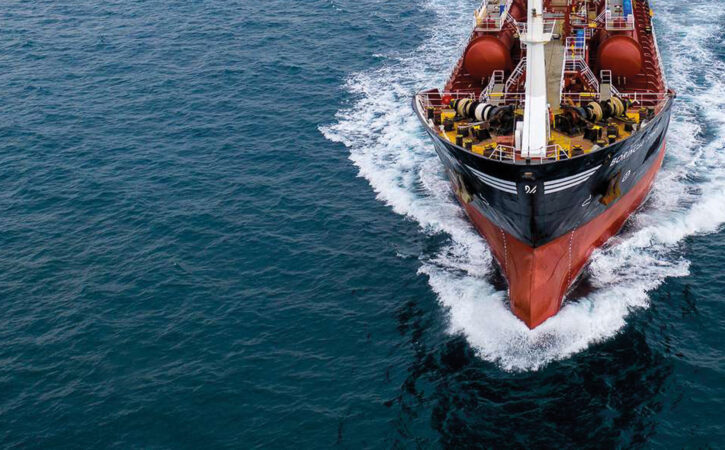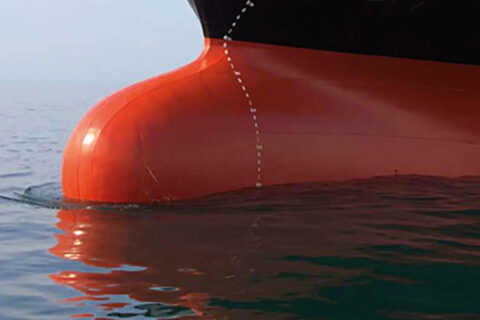Uni-Tankers’ ongoing roll-out of fuel efficiency technologies across our owned fleet has reduced our fuel consumption per vessel
Uni-Tankers’ commitment to decarbonization is having a clear and measurable impact, with fuel-saving technologies contributing to a more efficient fleet. In 2022/23, Uni-Tankers’ emissions from fuel consumption increased by 6%, but this is mainly due to a 9% increase in the number of vessels in operation compared to 2021/22. With fuel-saving technologies now installed on 11 of 16 owned vessels (up from 7 in 2021-22), we achieved fuel savings of 8-15% per vessel for those that have the technology installed. (See page 3 of Uni-Tankers’ 2022/23 ESG Report)
Initiatives duing the previous period
As of the conclusion of the 2022/23 fiscal year, Uni-Tankers has made significant strides in enhancing the sustainability of its fleet. Notably, fuel-saving technologies have been successfully implemented on 11 out of 16 owned vessels, a notable increase from the 7 vessels in the preceding fiscal year (2021/22). This proactive effort has resulted in substantial fuel savings ranging from 8% to 15%.
In a bid to explore innovative approaches, a noteworthy initiative in 2023 involved the application of a high-performance nano-modified epoxy coating to the M/T Fenno Swan. Although this application is still undergoing testing, preliminary results are promising, indicating potential fuel savings through friction reduction.
Furthermore, Uni-Tankers, in collaboration with the Bunker Holding Group, conducted B30 biofuel testing on its vessels during 2023. This initiative aligns with a broader commitment to environmental responsibility. Concurrently, plans have been set in motion for the Group’s headquarters in Denmark to transition from on-site gas heating to district heating by 2025, contributing to a reduction in emissions from onshore activities.
The results from the B30 biofuel testing revealed a substantial reduction of particle emissions by up to 42% compared to traditional LSMGO fuel. While no significant changes in NOx emissions were observed, there was a noteworthy 18% decrease in carbon monoxide emissions. These initiatives collectively underscore Uni-Tankers’ dedication to advancing sustainable practices within the maritime industry as we acknowledge that decarbonization is a key element in our formula for a better future.
Overall, this positively contributed to Uni-Tankers reducing its Energy Efficiency Operational Indicator (EEOI) rating, which is the International Maritime Organization’s (IMO) method for measuring the efficiency of vessels. The EEOI measures how efficiently vessels carry cargo in CO2 emitted per quantity carried and distance sailed. From 2021/22 to 2022/23, as an average across Uni-Tankers’ operated fleet (both owned and ‘time charter’ – or leased – vessels), EEOI improved by 5%, decreasing from 40.7 to 38.6.
The increased roll-out of fuel-saving technologies is a good example of Uni-Tankers’ approach to ESG. To identify the best solutions, Uni-Tankers tests different technologies and initiatives. When a solution is identified that has a significant impact – such as the previously mentioned fuel-saving technologies – they are systematically adopted across all suitable vessels in our owned fleet. For the five remaining owned vessels where fuel-saving technologies haven’t been installed, it has been concluded such technology would not have a meaningful impact due to the vessels’ restricted operating profiles.



